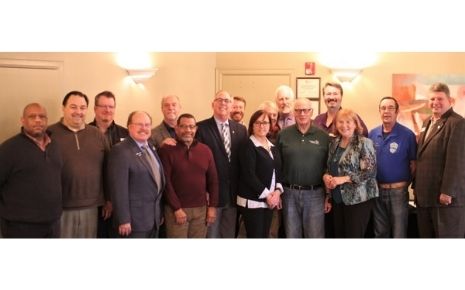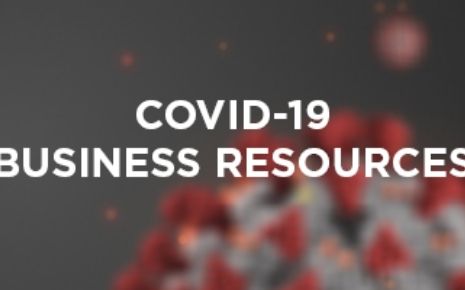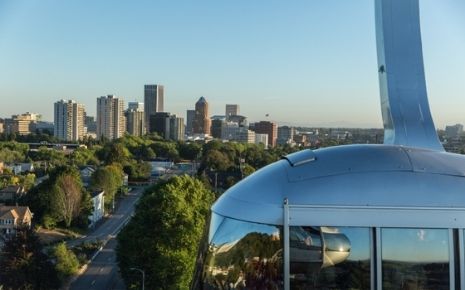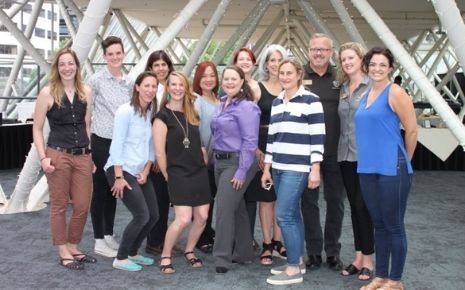
20 Mar 2020
GPI in the News
This photo shows members of the Metropolitan Mayors Consortium at a 2019 meeting.
This column appeared in the Business Tribune. Matt Miller, Greater Portland Inc's interim president and CEO, writes a monthly column for the local newspaper.
Greater Portland Inc is built on the knowledge that our region is stronger when we work together. Amid the coronavirus outbreak, this collaboration is more important than ever. With the help of our 90-plus partners, last week we published an online list of resources for local businesses affected by the outbreak.
We were well positioned to create this resource because our organization is in regular communication with our region’s communities. In this crisis, it has allowed us to act quickly to support our region’s businesses. In calmer times, these strong relationships allow us to market Greater Portland to the world with a cohesive message.
The Brookings Institution recently featured GPI in a piece showcasing regionalism best practices, and stressed the importance of regional collaboration in attracting foreign direct investment. The article emphasizes a key point: scale matters in global competitiveness efforts, and a region carries a lot more weight than a single city.
"Investors rarely pay attention to city borders," Brookings says. "Global competition should incentivize a region’s stakeholders to work together and project a common identity to the outside business community."
The Brookings article goes on to highlight Greater Portland Inc and our work with our partners as an example of successful regional collaboration. This collaboration especially pays off on our sales missions to foreign markets, where we convene economic developers representing states, counties, cities and ports to present the best business case for our region.
Regionalism can be hard. A region is made up of many communities, often with different needs and priorities, and unique challenges and advantages. But these differences are also what make our region strong when we speak with one voice.
When companies inquire about growth opportunities here, we’re able to tell them the advantages of the region as a whole: access to highly talented workers; excellent connectivity by air, rail, road and sea; proximity to natural resources; world-renowned quality of life.
Then we share information about communities in our region, each with distinct advantages that may fit the unique needs of various companies. We have a lot to offer companies.
Some, like diamond manufacturer Element Six, need a shovel-ready industrial site close to an international airport. Gresham’s Vista Business Park was the right place for them.
Others, like Coinbase, a cryptocurrency trading platform, prefer a space in downtown Portland, alongside other tech startups.
Edwards Vacuum, an international supplier for the semiconductor industry, found 8 acres for its manufacturing facility near Intel in Hillsboro.
RealWear, an augmented reality headwear maker, opted for a barracks site at the Fort Vancouver National Historic site.
Thanks to the unique nature of our communities, each of these companies with very different needs was able to find a site that suited it.
GPI’s work to act regionally in economic development has led to others’ productive efforts for regionalism.
The Metropolitan Mayors Consortium meets monthly and is comprised of 25 mayors.
“In an era when the fabric of government has been rapidly fraying, the Metropolitan Mayors Consortium is proof that we can still form deep partnerships, focused on common ground and collaboration,” said Gresham Mayor Shane Bemis, chair of the consortium. “We take on common-sense, consensus issues and advocate for the mutual interest of cities in the metropolitan region. I have been extremely impressed with the Consortium’s powerful voice, but even more impressed with the culture of cooperation we have built, during a challenging era in American politics.”
The Small City Consortium is another example of regional cooperation. Every month, GPI convenes leaders of our region’s communities with 50,000 residents or fewer to discuss economic development issues.
GPI also regularly convenes leaders from nine regional higher educational institutions, and economic development professionals from dozens of community partners.
When company executives from other regions visit Greater Portland looking to relocate or expand, they’re often struck by our region’s collaborative culture. Competitors are more likely to work together on projects that are mutually beneficial. This culture of collaboration makes us stronger.
More Topics




